Fahim Saleh murder jury must decide if Tyrese Haspil believed stabbing and dismembering tech CEO was 'reasonable'
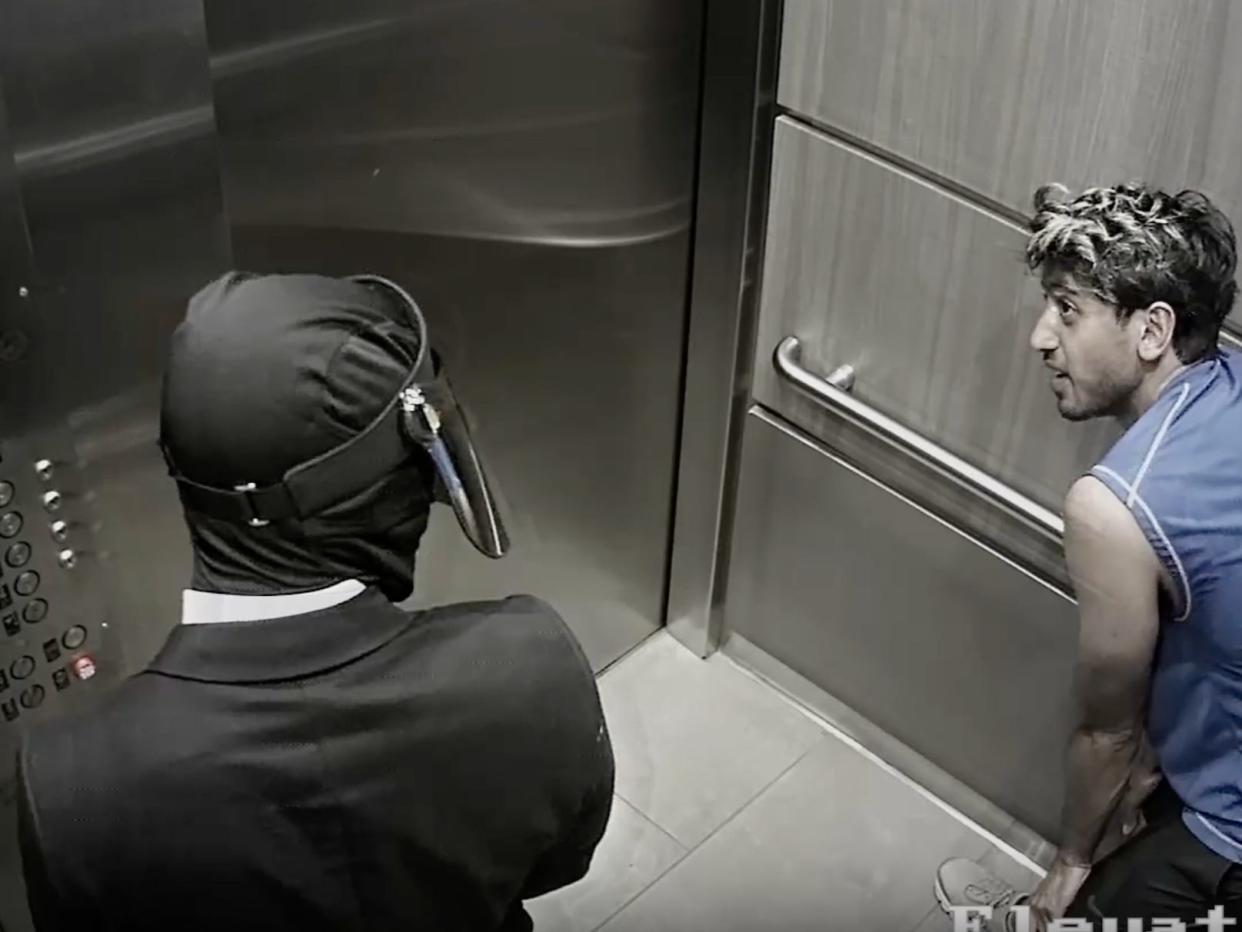
A New York City jury may begin deliberations Friday over the killing and dismemberment of Fahim Saleh.
Tyrese Haspil, who was embezzling Saleh, admits to Tasing, stabbing, and dismembering the Gokada CEO.
If jurors find Haspil "reasonably" believed he had no choice, he'd be sentenced for manslaughter.
A Manhattan jury will soon be asked to imagine the unimaginable: the mind of a killer.
They're set to be asked to assess the emotions and motives of Tyrese Haspil, a former personal assistant who admitted to stabbing his ex-boss to death to hide a $400,000 embezzlement and then sawing him into six pieces to hide the corpse.
Fahim Saleh, the CEO of the ride-hailing and delivery service Gokada, was found beheaded and dismembered in his $2.4 million Lower Manhattan condo on July 14, 2020. The prosecution is expected to argue in closing arguments set for Friday morning that it was a meticulously planned, stunningly brutal murder born of the basest greed.
But the defense is expected to counter that Haspil did it for love.
If the jurors agree — if they find that Haspil believed, in his own addled mind, that he had to kill Saleh to make his beautiful French girlfriend happy, as twisted as this thinking would seem to anyone else — then that love could literally set him free.

If the jury accepts what state law calls an "extreme emotional disturbance," or EED, defense, Haspil would be guilty of manslaughter, not murder, and would serve as little as five years in prison.
Anything less than unanimity — say, if one juror accepts Haspil's EED defense and 11 don't — would cause a mistrial.
And while murder must be proven beyond a reasonable doubt, an EED defense requires only a preponderance of the evidence.
That means whichever side the jury agrees was even slightly more convincing is set to win — either Haspil's lawyers or prosecutors, who are fighting the EED defense strenuously.
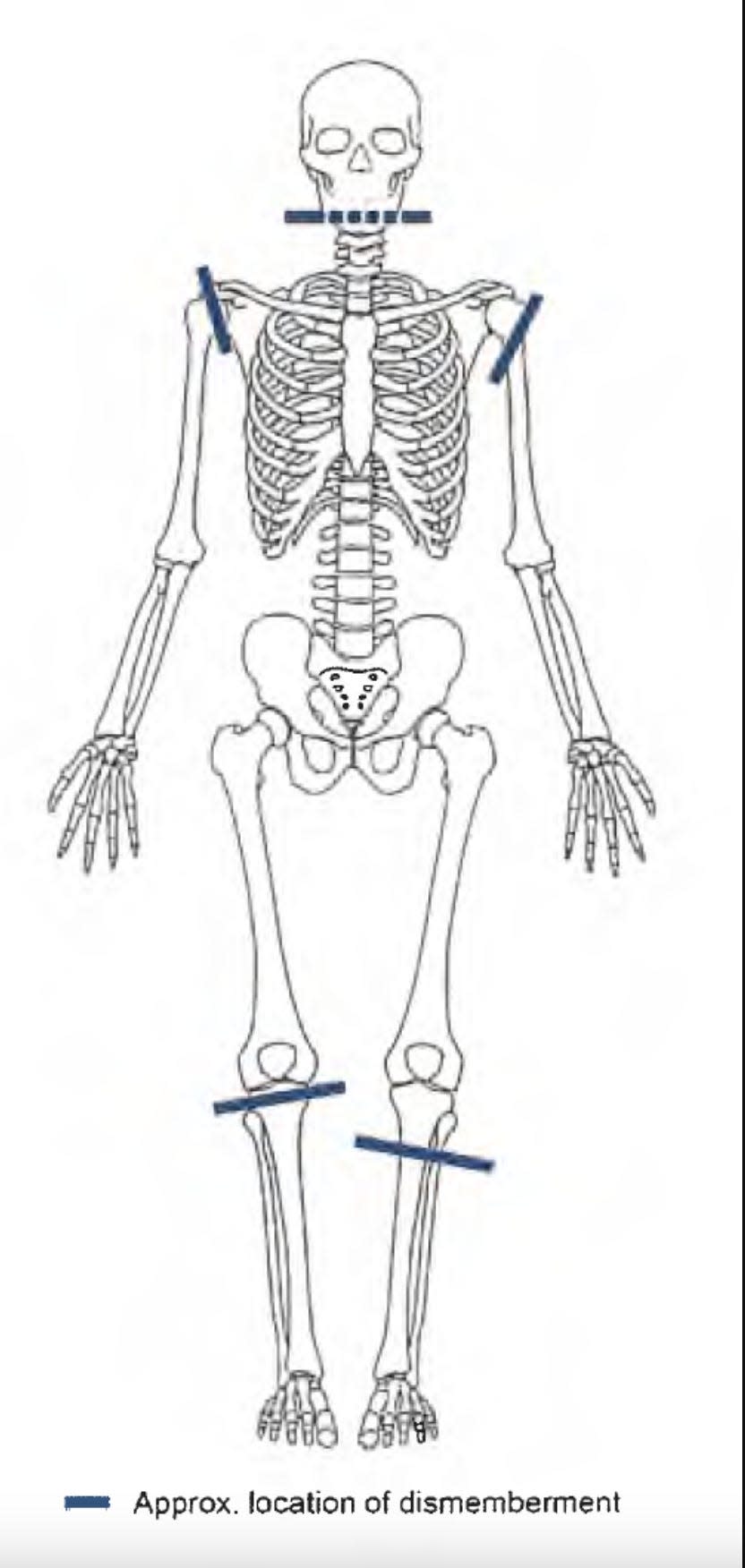
To 'show her that I loved her'
On the witness stand on Monday, Haspil described what he said was his state of mind.
"I needed to embezzle way more than I usually did," in the days surrounding the murder, he said.
He needed the extra money, he said, so he could buy birthday presents, including Louis Vuitton handbags and Christian Louboutin shoes, for his girlfriend, Marine Chauveau, before her Visa expired and she returned to France later that summer.
"That was the best way I could show her that I loved her," Haspil told the jury.
But Saleh's life stood in the way of this sumptuous send-off.
Haspil had been embezzling for almost two years, including in the year after quitting his $50,000-a-year job as the tech CEO's personal assistant. His ex-boss was letting him pay the money back without pressing charges but had discovered only a fraction of the thefts, Haspil testified.
The spending he planned would raise a "red flag," he testified.
"Well, I figured at that point I'm going to jail regardless," Haspil told jurors Monday, his voice so quietly calm it was barely audible.
"So either I go to jail because I can't pay him back, or I go to jail for murder."
Murder, he said, was the option that would buy him the most time.
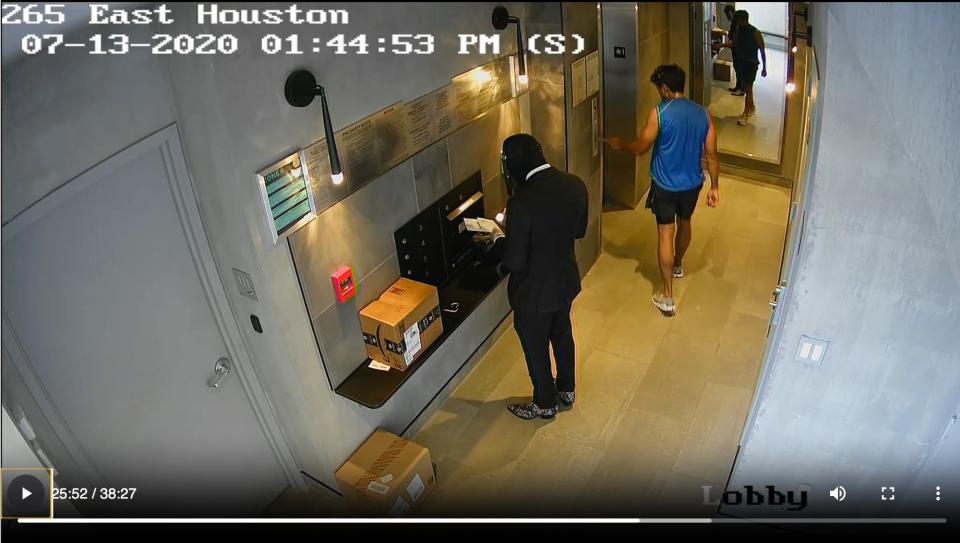
Haspil told jurors that he could buy the most time by hiding his victim, piece by piece.
"Well, at that point, I guess my goal was hopefully that people would initially consider him missing," Haspil testified.
"And until they discovered him, that would leave me enough time to let Marine leave the country," he said. After that, he told jurors, "I would get arrested."
Haspil testified that on the day after the killing, he returned to the scene, covered Saleh's face with a towel, and then "separated" the body with a Makita brand, 18-volt cordless reciprocating saw.
"Well, it was hard for me to do, mentally speaking," he said. "So I took a lot of breaks, and eventually, the battery died."
Saleh's cousin discovered the carnage later that afternoon, while Haspil was at a Home Depot buying a replacement battery and charger for the saw.
A bounty of birthday gifts
Haspil's spending spree on Chauveau — timed for the week of her 22nd birthday — included a stay at an $18,000-a-month Manhattan Airbnb apartment, an upstate zip-line adventure, a chauffeured shopping trip to a designer outlet center north of the city, and a spa treatment.
Haspil went online the night of the killing and ordered two of Chauveau's priciest gifts, trial evidence showed: a "Lockme" backpack and a "Trunk Clutch" handbag, both from Louis Vuitton, worth a combined $7,349.06.
He also spent more than $750 to have a 6-by-6-inch, single-tier vanilla cake custom-baked for delivery on Chauveau's birthday itself, July 19.
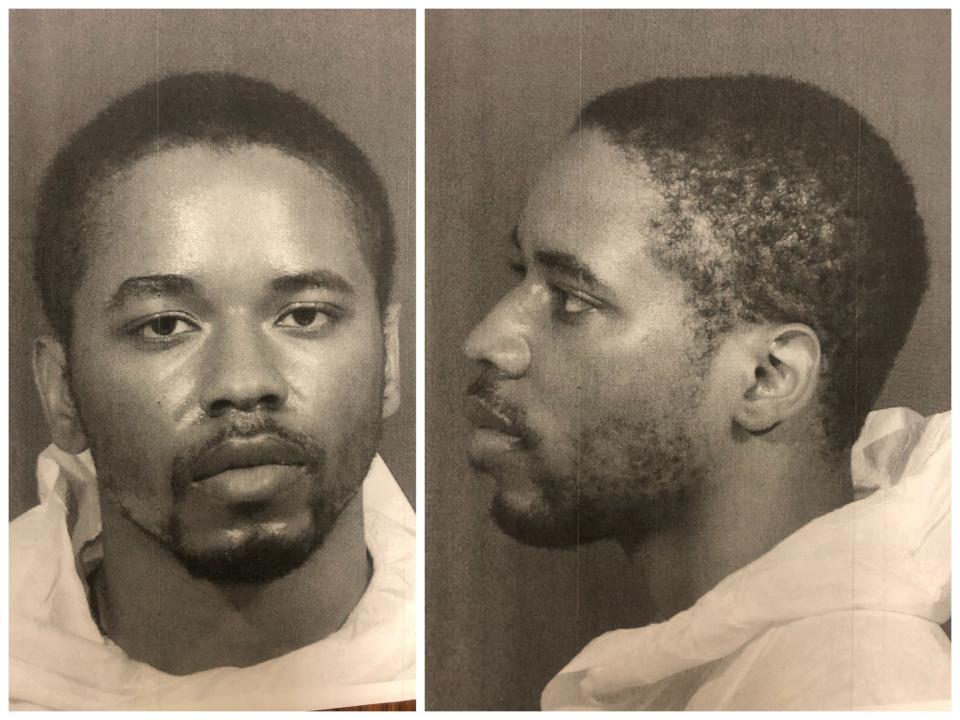
He ordered the cake a month in advance.
"The gold is an edible gold mixture," the baker testified at Haspil's murder trial two weeks ago, describing the cake, which replicated a Louis Vuitton handbag down to the straps and hardware.
Chauveau, who wasn't called as a witness, returned to France after his arrest, apparently taking at least some of Haspil's presents with her.
These included the two Louis Vuitton bags and a pair of tan Christian Louboutin stiletto pumps he bought for $715.31 just hours before his arrest, which was three days after the killing, on July 16.
The cake was never delivered.

Extreme emotional disturbance
Haspil, 25, faces life in prison without parole if convicted of murdering Saleh, 33, an admired Bangladeshi American tech entrepreneur who'd made a fortune through Gokada, his motorbike ride-share and delivery service in Nigeria.
A successful EED defense would mean Haspil could be sentenced to only five to 25 years in prison, making it a certainty he'd be set free sometime before age 50.

On Friday, after both sides' closing arguments, Manhattan Supreme Court Justice April A. Newbauer is set to explain the EED defense to the jury.
"Under our law, it is an affirmative defense to a charge of murder in the first degree that the defendant acted under the influence of extreme emotional disturbance for which there was a reasonable explanation or excuse," the judge is expected to tell jurors.
"The reasonableness of that explanation or excuse is to be determined from the viewpoint of a person in the defendant's situation, under the circumstances as the defendant believed them to be," she'll say.
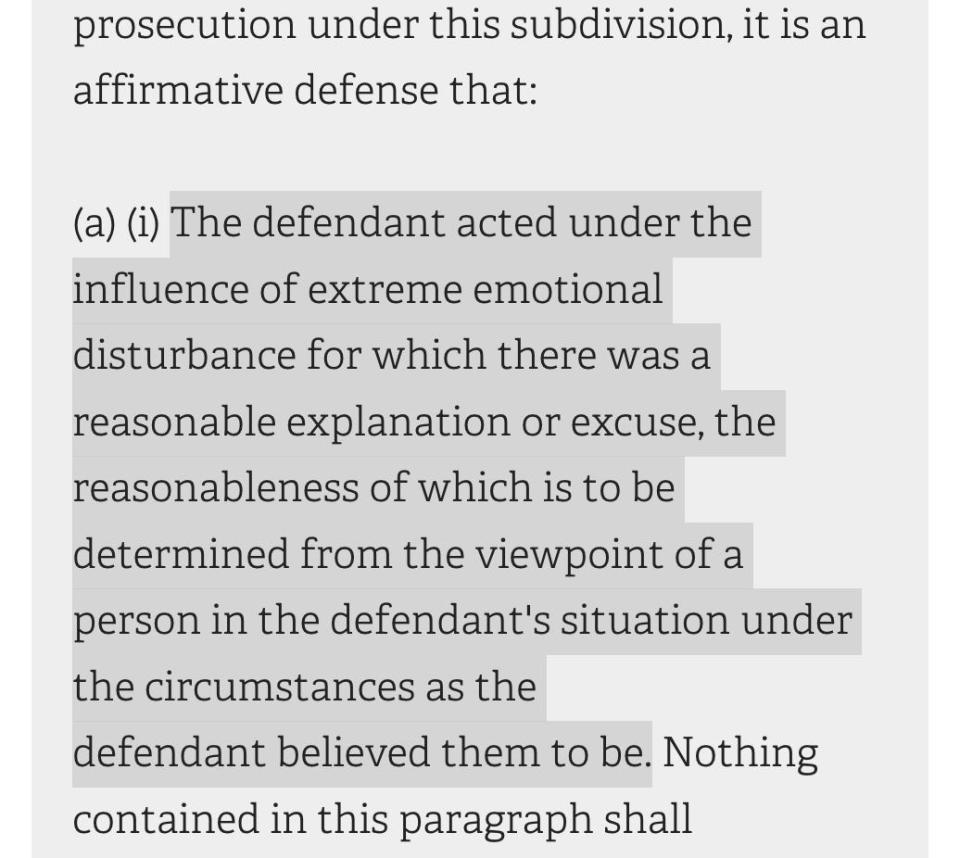
Haspil's emotional disturbance must be found to have been so extreme that he suffered "a profound loss of self-control," the judge is set to explain to jurors.
In other words, jurors must find that in killing Saleh, Haspil was helplessly under the influence of an emotional disturbance caused by circumstances that were "reasonable" in his own mind — his obsession with lavishing gifts on his girlfriend.
"He's a young man who had a really difficult childhood," the defense psychologist Dr. Barry Rosenfeld testified last week, describing Haspil's chaotic early years being raised in Brooklyn by a psychotic mother, followed by periods of foster care and homelessness.
The victim's sister shook her head in the audience as the psychologist continued.
"He finally gets himself into a relationship where he feels unconditional love," the doctor testified.
"Essentially, he's terrified of the end of this relationship coming," the doctor told jurors. "He's just essentially coming apart at the seams. And the only way out is suicide or homicide."
Weeks of detailed planning
Could it work? Might it convince even one juror and cause a mistrial?
Any kind of EED defense victory — even a mistrial — would be a historical outlier.
New York's EED defense and similar defenses in other states are almost always reserved for crimes of passion, when a homicide is committed by someone in the throes of a sudden, defensible rage — upon finding one's spouse in bed with a lover, as one example.
Haspil, by contrast, spent weeks researching, purchasing, and planning in preparation for the killing.
Earlier in 2020, Haspil took three trips to Saleh's offices in Lagos, Nigeria, and to his family's upstate New York home, which he testified were abandoned attempts to kill him.
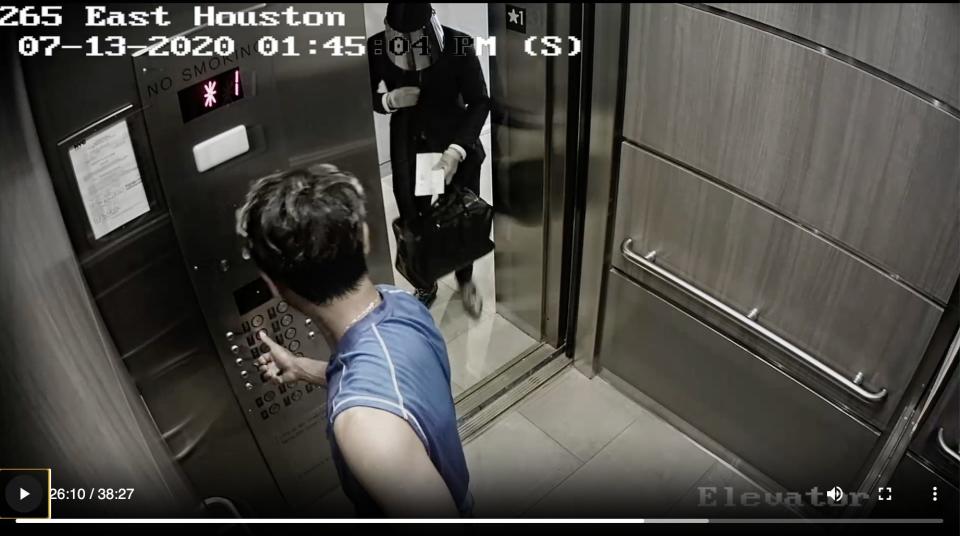
On June 13, 2020, as he pushed inside an elevator to share his victim's last ride home, Haspil wore or carried everything he had gathered for more than a month to transform himself, head to toe, into a furtive killing machine, trial evidence showed.
Across his face was a $55.98 black visor he'd ordered on Amazon on June 2, 2020, more than a month before the killing and the same day that Google records show he searched for, "What happens when you get tased?"
His head was shrouded in a black, balaclava-style face mask he bought on Amazon a week after the visor. His eyes were hidden by designer sunglasses purchased with Saleh's stolen money.
"So you bought $270 sunglasses to commit the homicide?" the prosecutor Linda Ford asked during cross-examination. "Yes," Haspil answered.
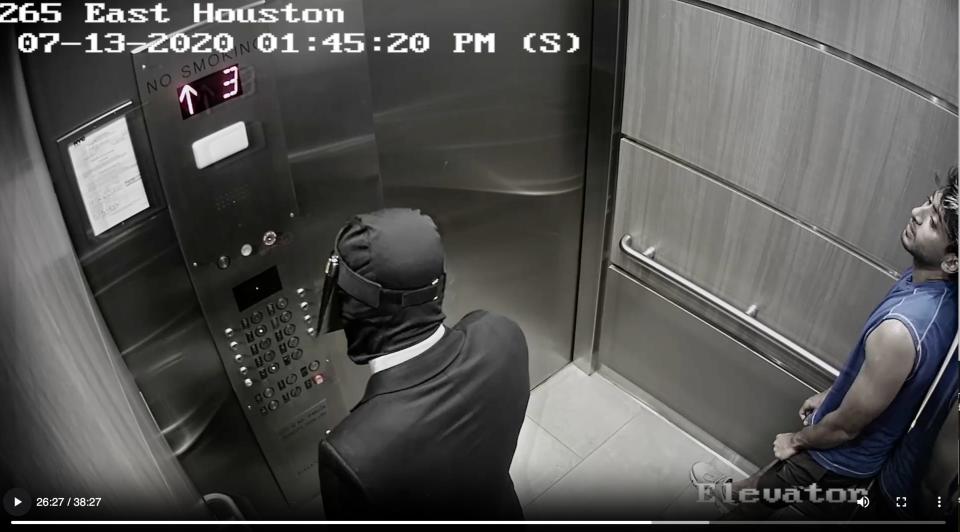
As the elevator began to rise, "He commented on my outfit," Haspil testified of Saleh. "He said something to the effect of, 'You're really taking this COVID PPE seriously.'"
Haspil wore a custom-tailored black suit with Tyrese D. Haspil embroidered on the inside jacket pocket, also purchased with Saleh's money.
Inside the embroidered breast pocket was a Taser Pulse he'd bought on Buy.Taser.com for $504.58. He'd signed for it himself when it was FedExed to his Brooklyn apartment on the first Sunday in June.
He Googled, "How many volts do Tasers put out?" after it arrived. "If i touch somkne being electrocuted will i get shocked if i touch them," evidence shows he also searched.
The black duffel bag Haspil held in his left hand as the elevator continued to rise contained a change of clothes.
It also held the iPad he'd been using to surveil his victim's building via a Nest camera he'd installed in a vacant apartment across the street. He'd gained access by posing as a prospective renter.
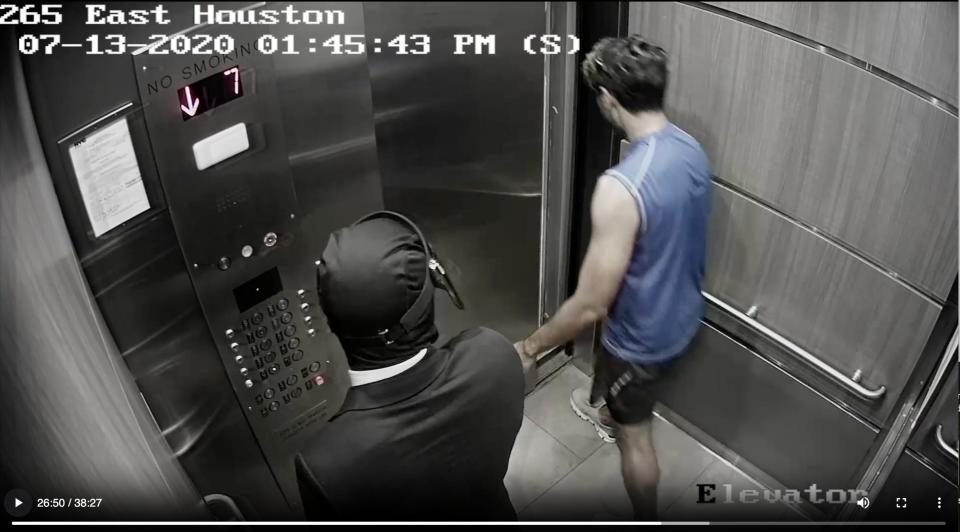
Even Haspil's choice of footwear was calculated. His cowboy boots would make him look taller than Saleh would have remembered, he testified.
"And then the doors opened," Ford asked during cross-examination. "What did you do?"
"I tased him," Haspil answered.
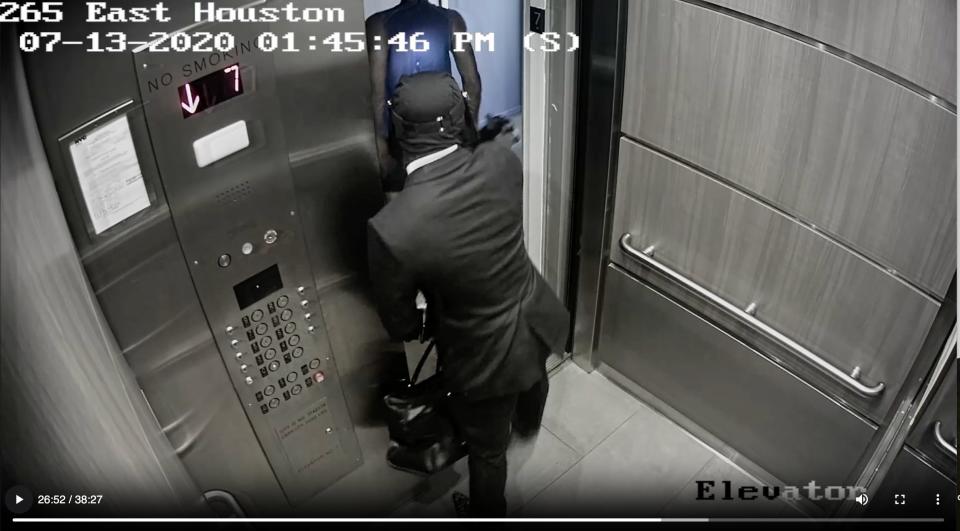
"And then what?" the prosecutor asked.
"I dropped the Taser and pulled the knife out and aimed for his neck," Haspil said, adding that he couldn't remember whether he'd pulled the hunting knife from his jacket or his duffel bag.
"Was there a delay between when you tased him and when you started stabbing him?" the prosecutor asked.
"It all happened really quickly," Haspil answered.
"Did he say anything to you as you were stabbing him?" the prosecutor asked.
"Yes."
"What did he say?" she asked.
Haspil said his victim asked him, "What are you doing?"
He said that when Saleh stopped moving, he "started looking for his bank cards to pay for the birthday."
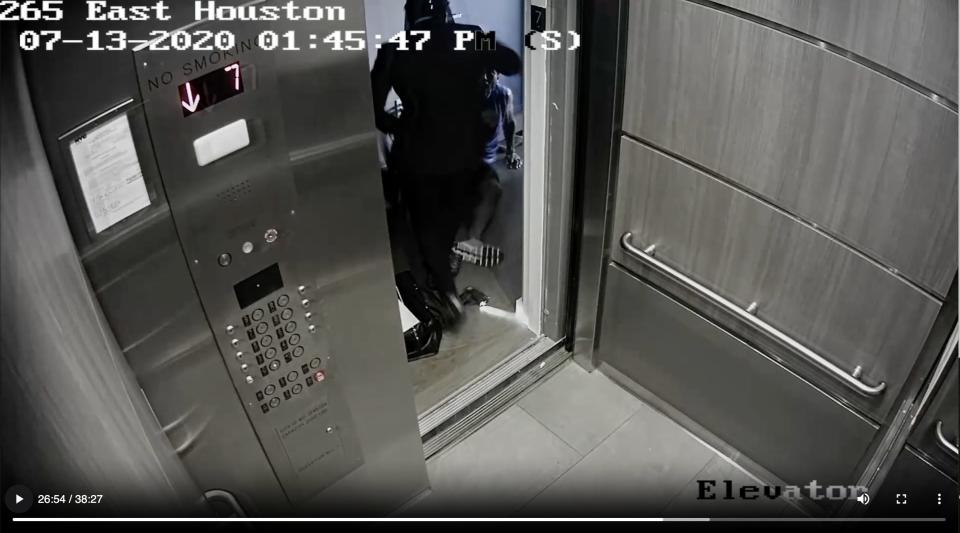
'Simmering in the unknowing subconscious'
During a hearing on Tuesday, prosecutors asked the judge to add to the instructions the jury would hear Friday. They hoped the instructions could focus on the sudden, crime-of-passion rationale that typically underlies an EED defense.
The prosecutor Joseph Goldstein asked that jurors hear a definition of "profound loss of self-control" from a 2022 state Court of Appeals decision: "a one-time out-of-character loss of physical self-control resulting from extreme mental trauma or extremely unusual and overwhelming stress without time to think or deliberate."
Prosecutors could then argue that Haspil thought and deliberated extensively as he planned to end Saleh's life and spend his money.
Haspil's attorney Sam Roberts— a public defender from New York City's Legal Aid Society — wanted the jury to hear different language.
He asked the judge to rely on Court of Appeals case law stretching back to 1976, which said EED could affect a defendant's mind "for a substantial period of time, simmering in the unknowing subconscious and then inexplicably coming to the fore."
After listening to both sides, the judge said she'd read the guidance on an EED defense as it's written in the state Criminal Jury Instructions.
Her only expected addition is telling jurors their decision to find or reject Haspil's EED defense must be unanimous.
"I think to add additional elements can be seen as adding an additional burden to the defense," the judge said of her reasoning.
Closing arguments are set for 9:45 a.m.
Read the original article on Business Insider


